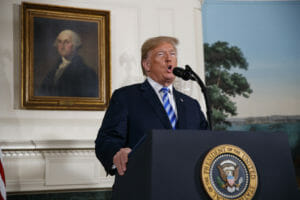In Washington, Public Policy and Private Wealth Are Hopelessly Tangled
Barack Obama in Washington reminds one of Diogenes in Athens, with his lantern in search of an honest man.Barack Obama in Washington reminds one of Diogenes in Athens, with his lantern in search of an honest man. They seem harder to find than the candidate Obama thought when he promised a Cabinet unsullied by business lobbyists and other peddlers of sectarian interests. Surely he can’t have thought the lobbyists all Republicans — he’s been around Washington long enough to know better.
Among Democrats, he stumbles on liberals who don’t pay Social Security on their immigrant household help. What a surprise. Then on former Democratic Sen. Tom Daschle, who proved to have a rather bigger problem.
There is a further complication. How do you find someone in Washington who knows what needs to be known about an issue who is not already financially tied to a solution? Sen. Daschle is reputedly the man who knows most about the American health care crisis: paying more for health than any other advanced industrial country and getting the worst, or nearly the worst, results.
The problem is that advanced countries with the best results usually have government single-payer systems or, like France — which, according to the World Health Organization, has the best system — a pragmatic mixed system. The French state health authority pays for basic universal care. Patients are free to choose whatever doctor they want, and doctors are free to practice wherever and whatever they want, and to choose the schedule of charges they want (the state schedule or a higher one for specialists).
Crucial to making this work is a quasi-universal system of mutual (note the word “mutual,” meaning “nonprofit”) insurance companies or groups into which everyone with a job has to pay. To keep insurance premiums affordable, the state also takes over care of people approaching death, and the fatally handicapped. There are big public hospitals, private hospitals that follow the state charge schedules, and private or quasi-private clinics and labs. All this is overseen by periodic negotiations among administrators, doctors and public groups.
Most American expatriates who have lived in several countries think France’s is the best compromise. I don’t say this particularly to tout France; I don’t know the Scandinavian, Australian or other systems that have good reputations. But American politicians making comparisons nearly always focus on the British NHS, which has chronic problems, in part because from the start it was deliberately made totally free. The patient pays nothing.
This means there is no barrier to doctor-shopping and trivial demands for care. In France, except for the very poor, the patient has to put up the initial payment for non-routine treatment, which the administration subsequently refunds. This automatically limits abuse.
To get back to Washington, while ex-Sen. Daschle is a reputed expert on health systems, he has also, since leaving the Senate, made a quarter of a million dollars as speaker, consultant and adviser to private health insurance and health care companies.
Does anyone think that, as secretary of health and human services, he would have recommended a new system that cuts out the private health insurance industry? The insurance companies are the ones that killed Hillary Clinton’s health proposals eight years ago. Where do you think the money goes that makes American health care the most expensive in the world? It’s not going into nurses’ salaries.
Nor are taxes a problem if you are going to be secretary of the treasury. “Whoops,” Timothy Geithner says, “how can I have overlooked 30 grand?” (Or maybe even a little more.) Maybe you can overlook it if you are a central banker or work for Goldman Sachs; I’m not in a position to know. Anyway, Secretary Geithner already is confirmed.
This is a serious matter, jokes aside. Is there anyone prominent in Washington who is not hopelessly entangled with big — really big — corporate money, that links him or her to certain industries or partisan positions?
Maybe not. Years ago, I used to rant that the only solution would be to require fixed and equal unpaid political campaign time on national and local broadcasting, and ban other paid political advertising. It’s the money for televised political campaigns that has turned Washington into a den of legalized larceny.
But then Washington has always been Another Place, as the Obamas are finding out. They are from Chicago, which has Serious Weather (more than three feet of snow a year). On one of their first days in the White House, less than an inch of snow fell on Washington and all the schools were closed. The president had Malia and Sasha underfoot.
He suggested to reporters that Washingtonians get a grip on themselves and find a way to cope with such crises. Since then, the snippy Washington comment has been that Washington snow is different; and that if the Obamas don’t like it in Washington, they can go back to where they came from.
William Pfaff’s Web site is at www.williampfaff.com.
© 2009 Tribune Media Services Inc.
Your support matters…Independent journalism is under threat and overshadowed by heavily funded mainstream media.
You can help level the playing field. Become a member.
Your tax-deductible contribution keeps us digging beneath the headlines to give you thought-provoking, investigative reporting and analysis that unearths what's really happening- without compromise.
Give today to support our courageous, independent journalists.






You need to be a supporter to comment.
There are currently no responses to this article.
Be the first to respond.